Is there anything more frustrating when you’re usually chill little one enters the toddler biting stage?
You’re happy as can be hanging with your toddler, who still seems a lot like a baby, and then CHOMP. They bite you.
You’re shocked and surprised, as this has never happened before.
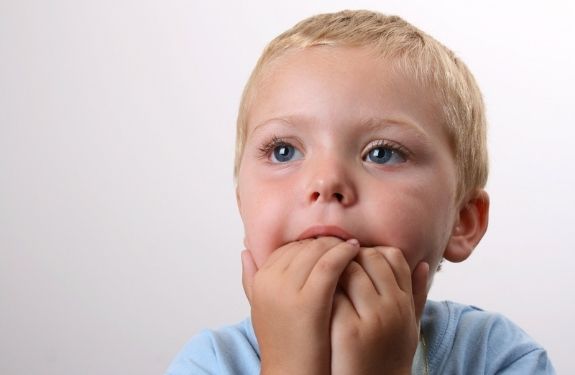
But before you know it this starts to become a normal event. They bite when they’re angry, or even when they’re happy. They bite you, they bite your spouse, they bite their siblings…it’s a lot of biting!
So let’s figure out how to tackle this toddler biting once and for all!
By the way, if you’d prefer to watch this as a video than read it, then check it out below. You can find more parenting videos on my YouTube Channel.
(This post might contain affiliate links, which means if you happen to buy a product I love then I may get a commission – at no extra cost to you! More information here.)
Is toddler biting normal?
Toddler biting is definitely normal, and you shouldn’t be alarmed by it as they usually grow out of it and there are ways for us to stop it too. There are some specific scenarios we will go through here though where you might be surprised that your toddler is biting in this way.
I am not a doctor though, and I certainly don’t know your child specifically, so always follow your gut and if you think something deeper is going on make sure to reach out to your doctor.
Toddler biting self
You might be worried when you start to notice that your toddler bites themselves sometimes. This is usually something they will go out of frustration or because they cannot express their emotions in any other way. This will happen mostly during a tantrum.
It can be very alarming to see your toddler biting and hurting themselves but it’s an emotional expression and as the parent we just want to calmly assist them in expressing that emotion (because it’s good to express emotions) but make it a little safer for them. We can calmly give them something else to bite instead, that way they can continue to vent their emotions without actually hurting themselves in the process.
Janet Lansbury says,
“But I’m seeing that in the big picture, my child having their flow of emotions and me not getting in the way of that is the best thing. That’s how they will get the message that it’s safe for you to go to these places in yourself. And they do pass. That’s what builds resilience, and eventually, children do have more emotional self-control.”
This is from her article Children Hurting Themselves When They’re Upset.
It may be scary in the moment, but supporting our child’s emotional growth is very important. If your toddler is biting themselves a lot then definitely check out the above article.
Toddler biting objects
If your toddler is biting objects a lot then this also could be a form of emotional expression, but it’s also possibly a sensory exploration as they are feeling the objects with their mouth, or of course they could be teething.
Chewing on things alone is a sensory experience, and many adults find themselves chewing on pen caps and what not.
So as the parent you just want to make sure that the biting is safe – make sure they’re not going to choke on something, and that they’re not destroying something you don’t want destroyed.
If they’re biting something that you don’t want bite marks in then there is no reason to punish the biting, just give them something they can bite that won’t be hurt by doing so.
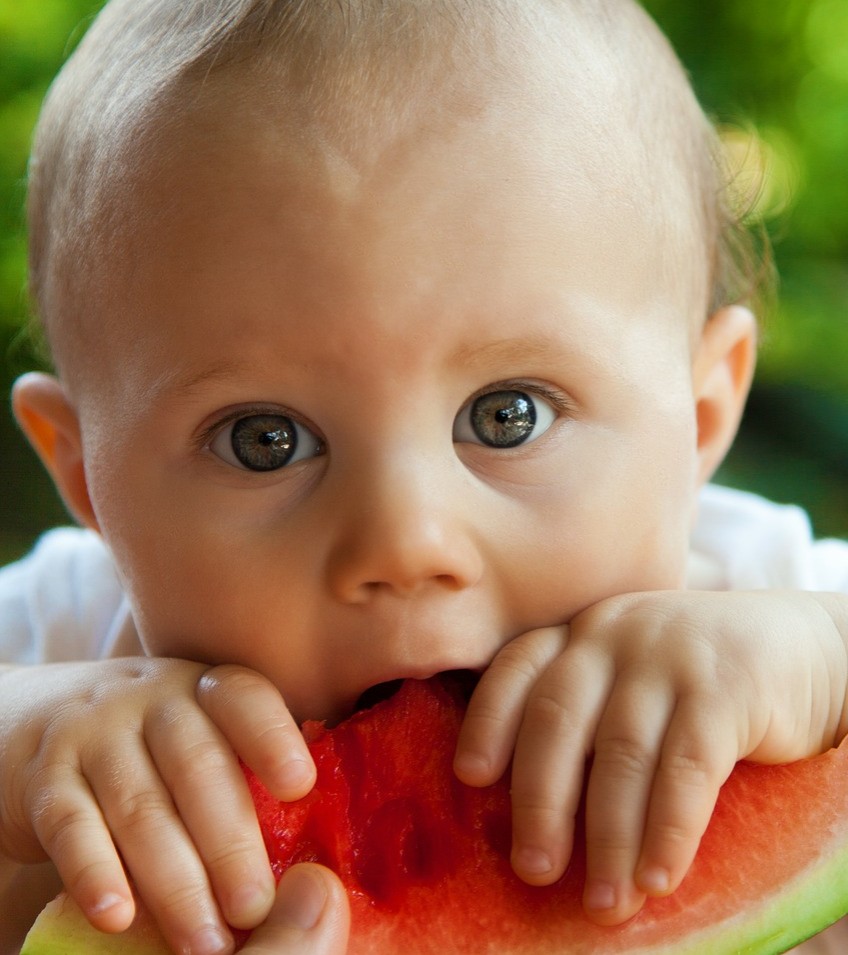
Toddler biting when excited
Believe it or not, biting doesn’t just happen when a toddler is angry or frustrated, they can also bite from excitement. If your toddler does this then don’t worry, you definitely are not alone.
Are you ever so excited and happy about something you just want to jump in the air or let out a happy scream? It’s a physical expression of the joy we feel inside. Your toddler can experience the same thing!
So we just want to redirect this excitement to another way to express themselves, but it’s definitely normal.
Is biting a sign of autism?
This question gets asked a lot, but in this case it’s definitely more important just to speak to your doctor.
Generally though, biting isn’t a sign of autism, but a symptom of autism. Some child who are autistic do bite a lot, but that doesn’t mean if your toddler bites a lot they must be autistic. There could be something else going on that’s adding to the constant biting, or even if you’re reacting really strongly they might have just learnt to bite to get big attention.
Here is a more in depth article with the early signs of autism if you’re concerned about that, and if you still have concerns then definitely reach out to a professional such as your family doctor.
Toddler biting at daycare
Have you gotten reports recently that your toddler is biting at daycare? I’ve worked in the daycare setting before, and this definitely happens with toddlers, but it doesn’t necessarily mean your child is on the attack going after other toddlers.
Toddler biting at daycare usually happens because a toddler is trying to communicate what they want. For example, another child takes their toy, so they bite them as to say, “Give it back!” Sometimes though the adults in the room don’t have the chance to see the entire reaction, but they see the crying toddler who was clearly just bitten.
You can help your toddler find other ways to express their emotions, but this is a harder situation to handle since you aren’t actually there when it’s happening.
You can talk to the daycare workers to find out what exactly is happening. Maybe your toddler needs to go for their nap sooner than the others because they’re getting overtired, or maybe they’ve been getting overwhelmed when they’re surrounded by lots of other toddlers and that’s usually when they bite.
Most daycare workers should be educated on child development and will be able to help prevent the biting in the classroom so other kids don’t get bit, while still acknowledging the fact that your toddler is learning to express themselves when they’re upset.
This is normal toddler behaviour, even if it seems like your toddler bites more than the other toddlers do.
Remember this to stop a toddler from biting
Alright, now let’s get into the real nitty gritty of stopping a toddler from biting.
First though there are a couple things that we as the parent need to keep in mind. Remember, here at TheMovingMama.Com I teach all about Gentle Parenting, so we’re not going to use punishments to stop the biting from happening (I believe they’re ineffective). We want to use gentle strategies that teach them to do the right thing, instead of punishments which teaches to avoid getting caught.
So knowing that, there are a couple things we want to keep in mind when we tackle toddler biting.
#1. We should not project our frustration
When handling any difficult behaviour from our child, we want to stay as calm as possible.
If we feel frustrated with them, and we project that emotion onto them, then it’s quite easy for their emotions to escalate as well.
Instead, we want to invite them into our calm.
Try taking a deep breath or pausing before you speak if necessary. In all our actions we want to be as calm and smooth as possible. If we react harshly with our words or body language the situation can become much worse.
When our words are calm and our body moves gently it helps to relax our child. The situation feels safe. When we react strongly, the situation suddenly does not feel safe. It feels chaotic and unpredictable.
So stay calm, and avoid projecting any frustration on your child so they stay calm too.
Related: 6 Steps to Stop Being an Angry Mom
You can learn more about using Gentle Parenting techniques for a more effective approach to discipline using my Gentle Foundations for Parenting free course. It’s in both written and video format to make it easy for you to consume.
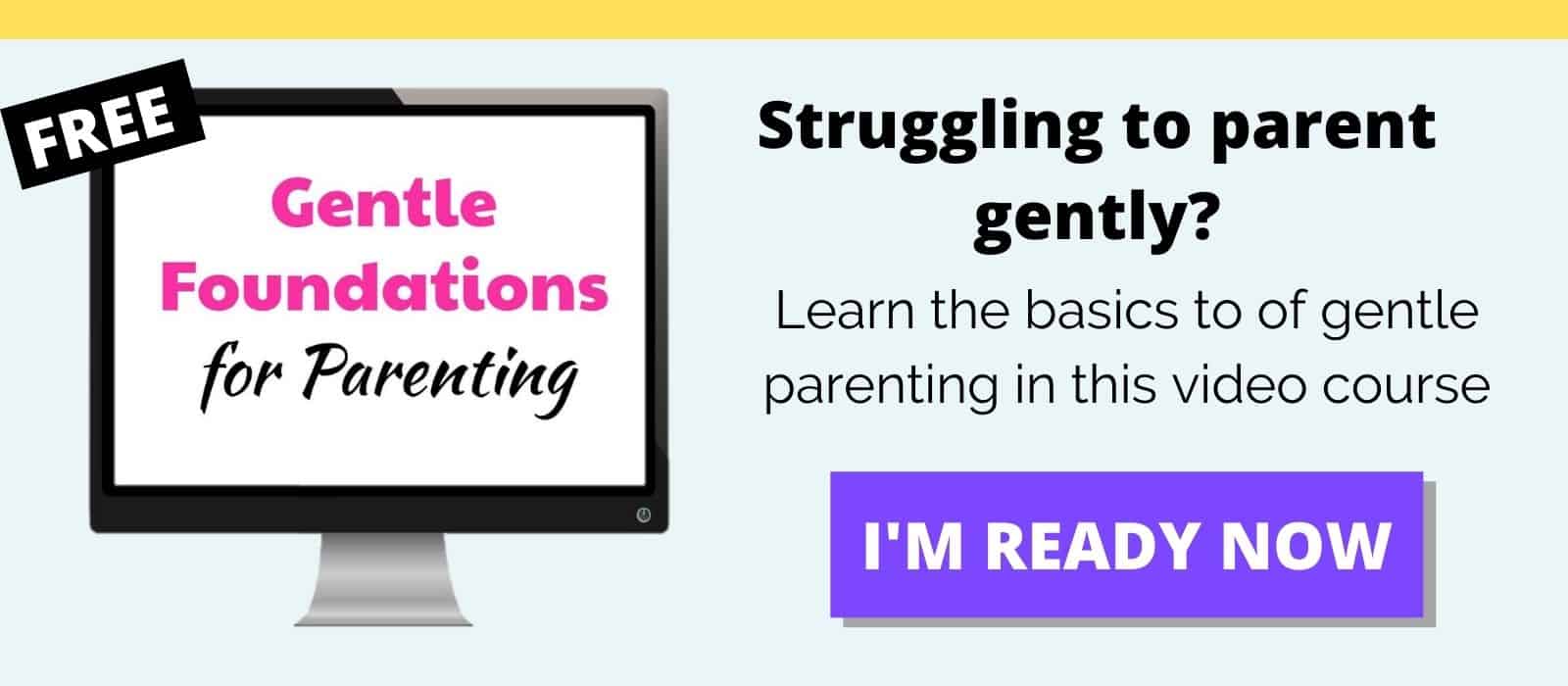
#2. Their emotions are ok, just not their way of expressing them
Emotions are allowed. 100%.
This is something that definitely sets Gentle Parenting apart from mainstream parenting because we never want to punish or shame a child for the way they feel. A lot of us were raised this way, so maybe you’ve sent your toddler to time out before for having a tantrum, because that’s what would have happened to you as a child.
We’re going to change that though.
Focus on what’s not ok about how they expressed their emotions. The emotions themselves aren’t the issue.
As an adult, I am allowed to be angry. Say someone dings my car in the parking lot, I’m allowed to feel angry about that right? The feeling is ok, but how I choose to express it could be problematic. Out of anger I shouldn’t ram my car into theirs, and I shouldn’t start a screaming match with them out of anger either.
But to process my anger I can think to myself, “I did not like that,” and I can take deep breaths, and I can remind my brain that I’m not in danger. I can process my anger in a healthy way without suppressing it.
And that’s exactly what we want for our biting toddler.
We want them to express their emotions appropriately, and we don’t want them to suppress their emotions.
They’re allowed the be angry, they’re just not allowed to BITE you because they’re angry. If we can agree on that together, then handling the biting will be much easier.
How to Stop a Toddler Biting in The Moment
Step #1. Gently remove them from biting
With a gentle, yet strong, hand remove your toddler’s teeth from whatever/whomever they are biting. If you have to hold their face as well as you are doing this make sure you do it gently. Remember, this is staying calm so they stay calm too.
If they’re clenched down hard on you then what I’ve done is just give a little armpit tickle so they’ll squirm and loosen their grip enough so you can get out.
Step #2. Gently tell them it hurts
With a soft, gentle voice (to see the situation as calm as possible) say to them, “Ouch, that hurts my body.”
You do want your toddler to learn and understand that when they bite you it does hurt them.
If your toddler bites a lot, then eventually they will have heard this a lot, and sometimes you can skip this step if it feels unnecessary. Sometimes it’s good to skip this step because you don’t want to dwell on the situation and just move on from it, which can be a very good idea sometimes.
Step #3. Redirect the biting
Finally, in this situation where they have just bitten someone, you can then give them something else they can bite instead.
A teething toy is great, or an apple, or anything else you feel is appropriate for your toddler to bite. You can say something like, “Ouch, that hurts. You feel angry and want to bite. Here, bite this instead.”
If the bite seemed like a one time thing for that moment, and they don’t need to keep biting anything else, then you can just redirect their attention and activity to something else. This helps to move the situation along and move on to the next thing.
Here are some great teething toys if you don’t have anything your toddler can bite.
How to Stop Toddler Biting Long Term
Ultimately, we would love to have a way to stop a toddler from biting. But we do not want to use fear as the motivator (ex. biting them back when they bite us) so it could take awhile for them to learn not to bite.
It is important, as I’ve already said, to stay calm in the situation because if we give them a big reaction or escalate the situation it could lead to even more biting in that moment and in the future.
Here are some things we need to keep in mind:
- Toddlers grow out of the biting phase
- They need more tools to communicate
- They’re still developing self control, even if they know biting hurts
There is still a lot of development that needs to go on for our toddler to stop biting. You wouldn’t expect a 4 month old to know how to walk, they’re still learning how to crawl, pull themselves up, balance, etc. They need those other skills in place before they can reach the big milestone of walking.
It’s the same thing with our toddler. They need to develop other skills (communication and self control) before they can completely stop biting.
There isn’t much we can do to hurry up our toddler’s self control development, but we can help them learn to communicate better.
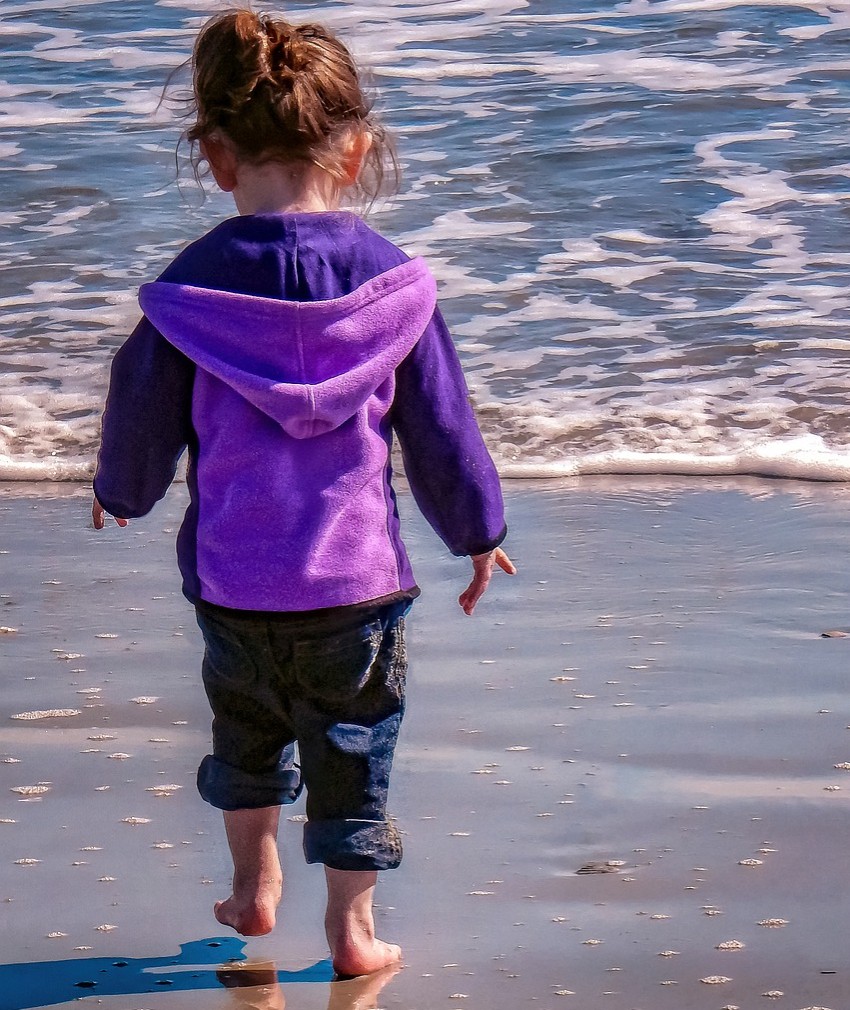
Preventing toddler biting with more tools
Observe when and why your toddler is biting. What are they trying to express?
Teach them what to say
Maybe they’re biting a sibling when they do something they don’t like. Teach them to say, “I don’t like that,” (and teach the sibling to respect that). If their words are able to get the message across, and get the results they want (usually for the other person to stop) then they won’t have to resort to biting.
This is why I find it important to respect our children. If we’re doing something they don’t like, we should stop. Or if we’re doing something they don’t like but it’s necessary (for example, brushing their teeth) then how can we continue to do it but still respect them? We can be more gentle, tell them why it’s necessary, allow them to do it themselves, etc.
Teach them what to do
You can also teach your toddler what to do when they are angry or don’t like something. Teach them instead of biting someone they can bite a toy, or they can put their hands on their face and squish (an alternative sensory experience).
Keep observing the situation closely so you can be in tune with what skill they might need in that scenario that they can use instead of biting to express their emotions/communicate.
Over time they will start biting less and less.
What if the toddler keeps biting everyday?
This is tough, but it does happen that even if you use all these tools I’ve equipped you with and stay calm as a cucumber all day long, they STILL seem to bite quite often.
This doesn’t mean that these tools aren’t working, but it just takes time for your toddler to develop the skills and self control they need to stop biting. One day they will have the self control to not bite when they’re angry, and the skills to express their anger in a healthy way. But maybe today, and tomorrow aren’t those days.
At times you also may need to keep your toddler away from their siblings or learn how to stop the biting from happening right before it does so no one gets hurt. Eventually, it will come to and end and you won’t have to worry about it anymore.
In the meantime though, stay calm. As calm as you can be. And keep up with gently stopping it from happening, and teaching them new skills after observing why they are biting. Soon you will start to see the biting decrease, and you can be grateful that through that season you stayed patient with your child and gave them the emotional skills they needed.
Conclusion
In conclusion, toddler biting is normal and you can take a Gentle Parenting approach to stop them in the act. You will also teach them new skills to use next time they want to bite, but as a Gentle Parent you can acknowledge their development, and know that they might not have the self control yet to completely stop biting.
As the parent it’s your job to stay calm, and to keep everyone safe. You’ve got this!
And don’t forget to sign up for my free course – Gentle Foundations for Parenting, so you can learn how to use even more effective strategies for discipline.

Posts Related to Toddler Discipline
5 Easy Tips When 3 Year Old Doesn’t Listen
How to Raise a Strong Willed Toddler
How to Respond WHen Your 3 Year Old Lies
What to do When Your Toddler Hits You
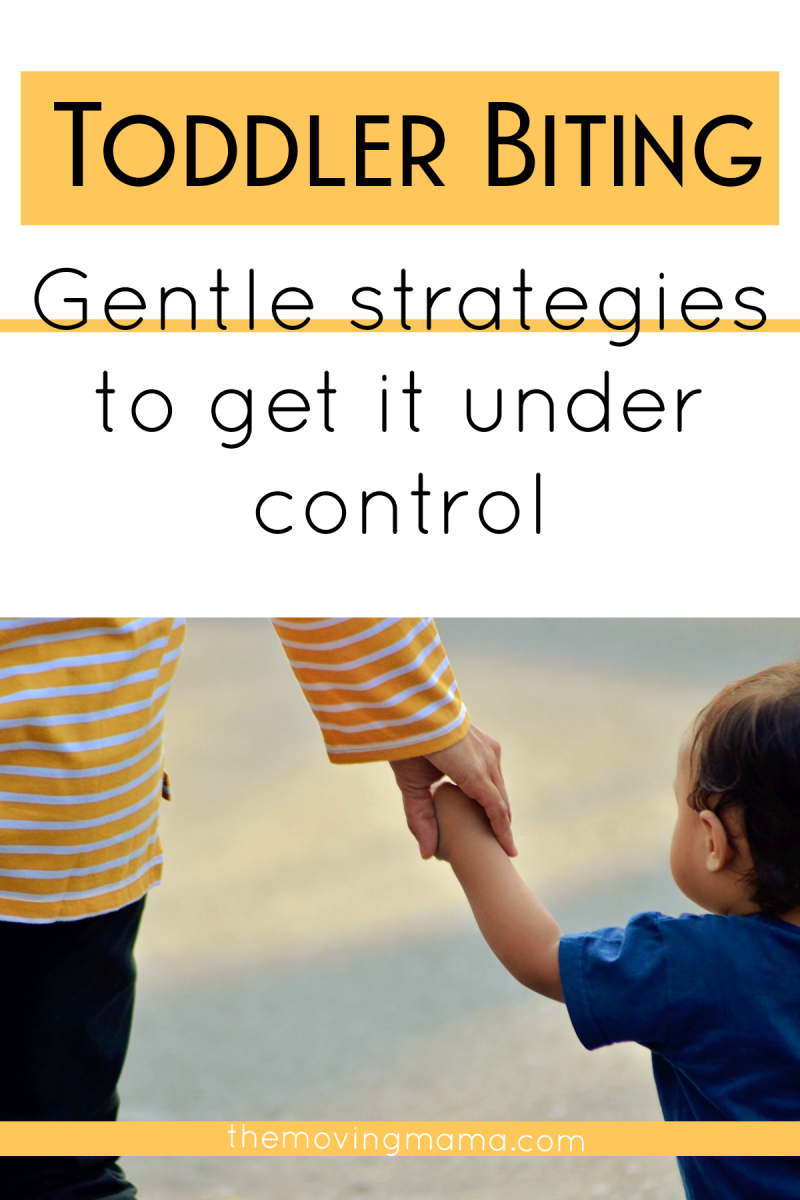


I’d rather not say my name or anything but thank you… i work at a daycare in the afternoons and my kids have been biting and I keep blaming myself… It happens when I’m changing diapers, cleaning tables, we’re listening to music, it’s happen all the time and I feel out of control.. Tears when I leave work because I’m blaming myself seeing how upset the parents get about it..
Thank you for mentioning how you should remain calm when dealing with your child’s behavior in order to prevent their emotions from escalating. Whenever I try to help my daughter with her homework, I notice that my son tries biting me in order to get my attention, and I want to find a way to confront him about his behavior in a loving way. Maybe I should find some more resources to help me stop my child from biting.